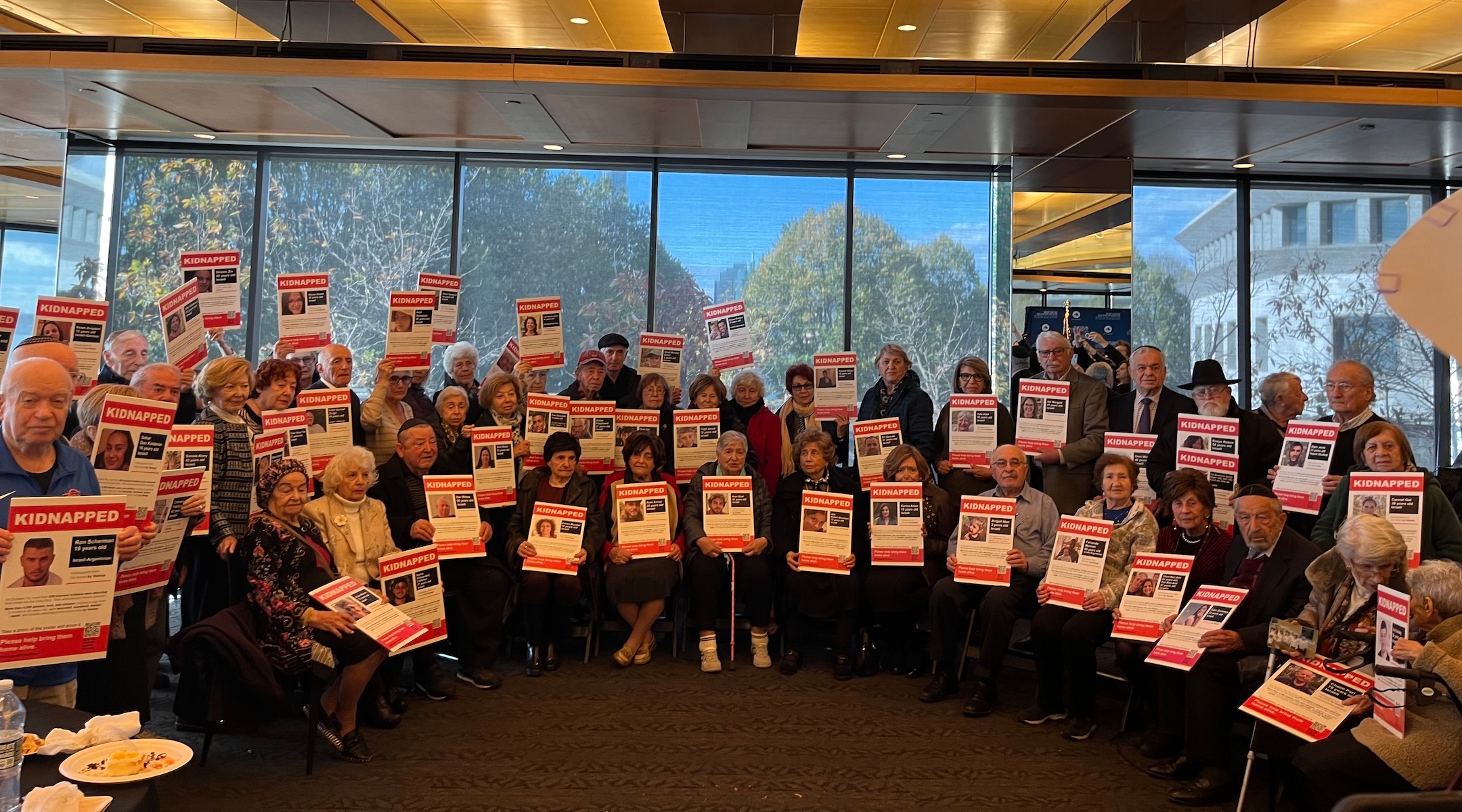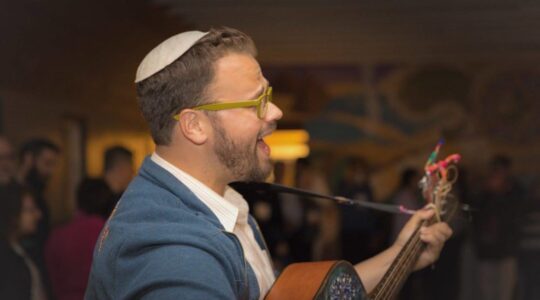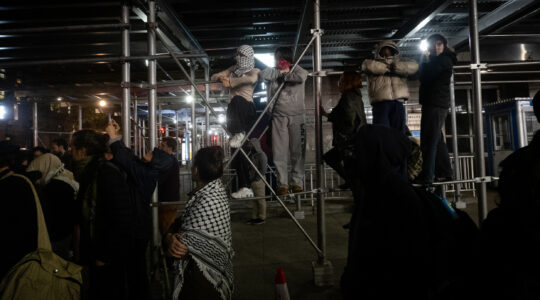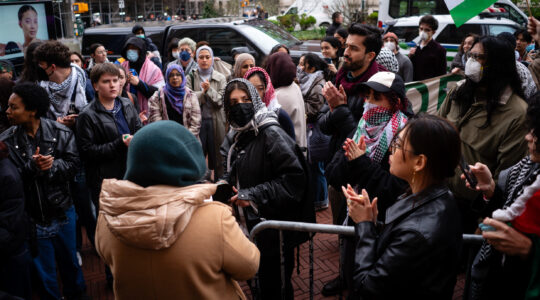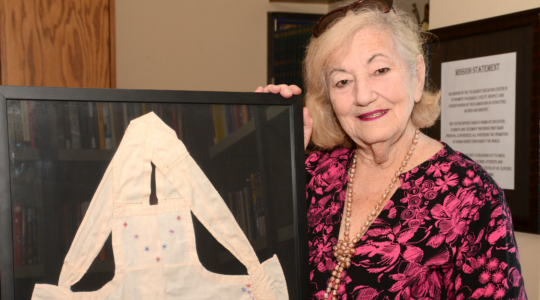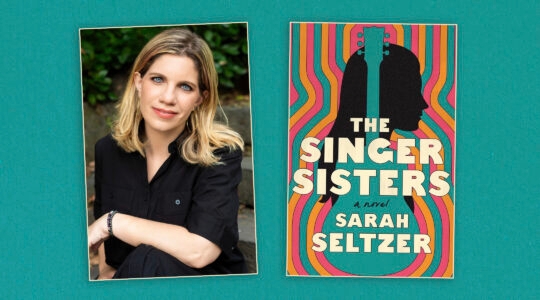(New York Jewish Week) – As a docent and speaker at the Museum of Jewish Heritage, Holocaust survivor Toby Levy has spent more than a decade sharing stories from her Polish childhood spent in hiding and deep fear.
Levy was once again at the museum in Lower Manhattan on Wednesday, but this time not to share her memories with visitors. Instead, she and more than 200 other survivors filed into the museum’s event space for “Images of Hope,” a powerful photo project in which each survivor posed for a portrait while holding a poster of one of the more than 240 hostages being held in Gaza by Hamas.
“I felt a good feeling,” Levy, 90, told the New York Jewish Week after her portrait was taken by photographer Gillian Laub. “I felt as if I am a very lucky person. So if I feel I’m so lucky, I’m hoping that maybe, somehow, it will reach them inside the picture.”
Levy added that the Oct. 7 Hamas attack on Israel — and the subsequent explosion of antisemitism seen around the world since — remind her of her childhood “perfectly.”
“I’m back there all over again,” she said. “This is how it started with the Germans.”
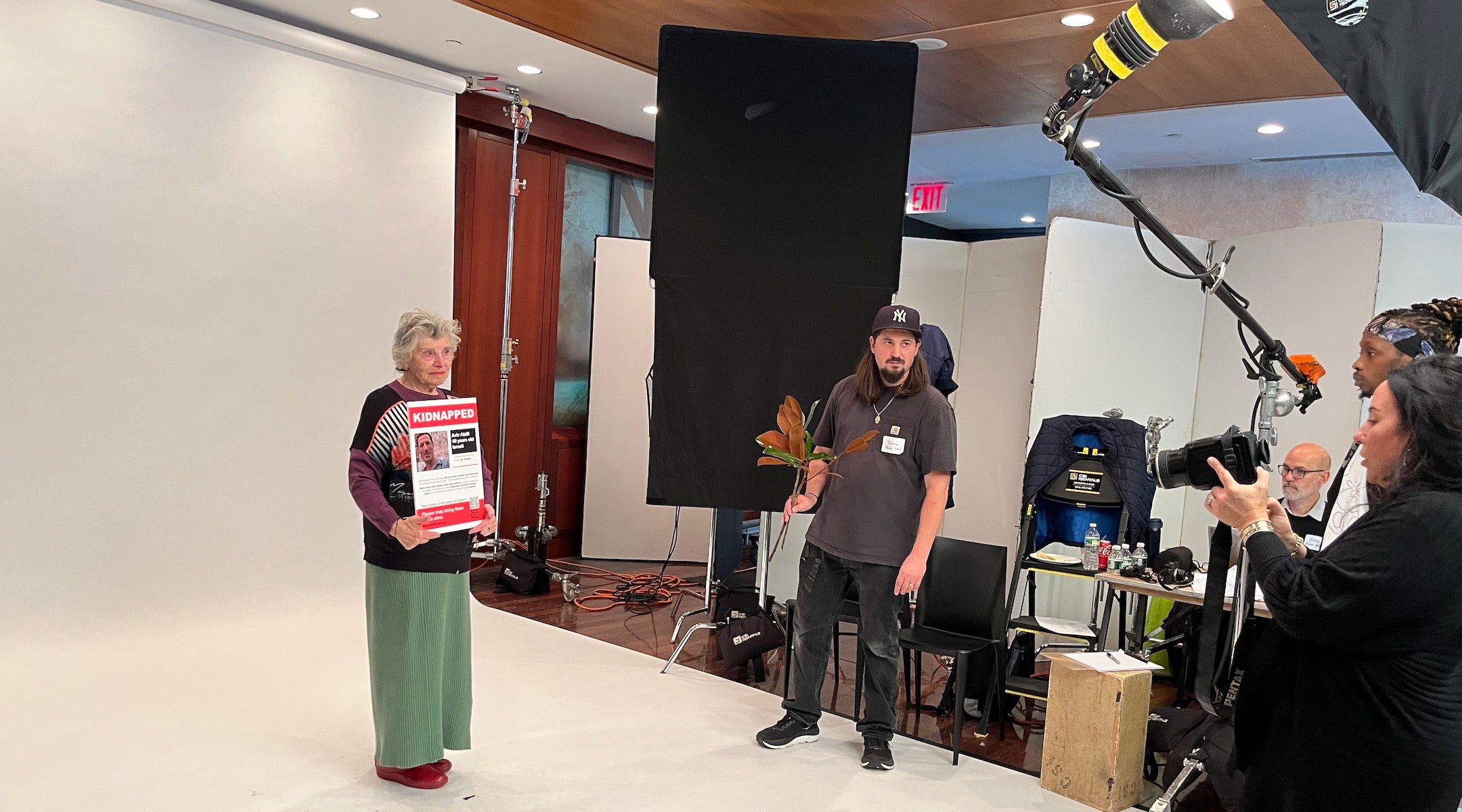
Maya, a Holocaust survivor, poses with the kidnapped poster for Aviv Atzili while Gillian Laub snaps a photo for the project “Images of Hope.” (Julia Gergely)
On Tuesday, FBI Director Christopher Wray warned that antisemitism in the United States has reached “historic levels” in the wake of Israel’s war with Hamas.
The museum event was pulled together in just two and a half days after it was conceived Sunday by Jack Simony, the director general of the Auschwitz Jewish Center Foundation, a nonprofit based in Poland and New York that provides Holocaust education and humanitarian assistance to victims of mass atrocities.
The Holocaust survivors came together under various auspices, including the AJCF, as well as the Museum of Jewish Heritage, the Claims Conference, the Jewish Community Center of Greater Coney Island, Boro Park Bikur Cholim and several other Jewish organizations that work with New York’s population of Holocaust survivors, which was estimated at nearly 40,000 statewide as of April 2022.
The survivors heard speeches from various elected officials, including Jewish City Council members Eric Dinowitz, Simcha Eichenstein and Julie Menin and from Manhattan Borough President Mark Levine. Also present were Carsten Ruepke, the German deputy consul general; Aviv Ezra, a senior diplomat in the Israeli consulate and Rep. Dan Goldman. Each spoke of the survivors as symbols of resilience and strength for the Jewish people and proclaimed strong support for the State of Israel as well as the immediate, urgent need to return the hostages safely.
Fay Malkin, an 85-year-old who survived the Holocaust in Poland by hiding on a neighbor’s farm, told the New York Jewish Week that she has felt “so much misery” since the Oct. 7 attack. “The most important message and the thing that will save us is strength and specifically the strength of Israel,” she said.
Posters with the words “Never Again Is Now,” lined the walls of the room, and Ruepke, the German representative, repeated the phrase in his speech.
“I speak to you as the representative of a country that bears a historic responsibility for the worst imaginable crime, the crime committed by Nazi Germany: The Shoah. The systematic murder of 6 million Jews with the aim of eradicating Jewish life from Europe,” he said. “It is not easy to put into words what it means to me that so many Holocaust survivors are present here today in a show of solidarity with the hostages taken on October 7. You all have my deepest respect and admiration.”
Support the New York Jewish Week
Our nonprofit newsroom depends on readers like you. Make a donation now to support independent Jewish journalism in New York.
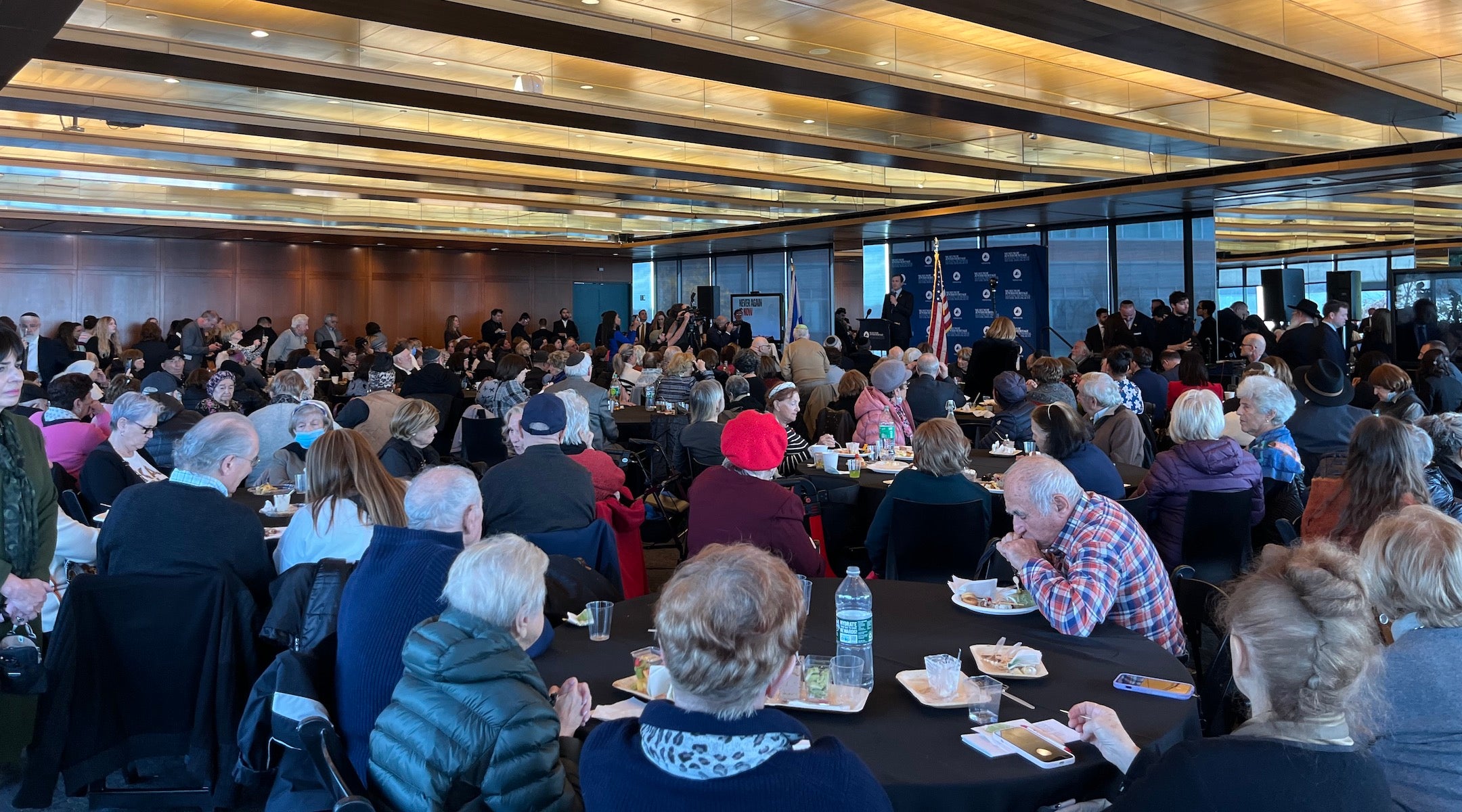
The survivors heard speeches from local electeds. Speaking is Rep. Dan Goldman, (D-N.Y.) who was in Israel with his family when the war broke out. (Julia Gergely)
The assembled survivors sang “Hatikvah,” the Israeli national anthem, as well as “Yerushalayim Shel Zahav” (“Jerusalem of Gold”). They also said “Mi Sheberach,” a prayer for healing, for the hostages and injured people.
Over the course of four hours, survivors were pulled aside individually to pose for a portrait holding a poster. As they waited their turn, they listened to the speeches, schmoozed with one another and ate a catered lunch of blintzes, wraps, pastries and fruit. The afternoon concluded with a group portrait.
The event was the latest addition to a massive global movement seeking to drawn attention to the hostages even as attention turns to Israel’s war against Hamas. “Kidnapped” posters have gone up around the world, as have billboards and public displays symbolizing the hostages’ absence, including empty Shabbat tables, strollers and beds. Relatives of the hostages have also embarked on a world tour, visiting the United Nations and elected officials in multiple countries to press for attention.
Simony said the room full of the survivors — the majority of whom are in their 80s and 90s — provided an “indelible image” that could add to the pressure and will stay in the hearts of the Jewish people at a time when they need it most.
What exactly will happen with the portraits is undecided as of yet, organizers said. They plan to print them and hope they will be hung exhibits around the world, as well as distributed across social media and to families of the hostages.
Seeing so many Holocaust survivors come together for the project is like “air,” Jack Kliger, the president and CEO of the Museum of Jewish Heritage, told the New York Jewish Week. “Our survivors are our north star. Whenever I have a question of how we should approach something, I listen to my groups of survivors. The universal thing we heard from survivors is that they are so frustrated and they want to know what they can do and how they can raise their voices.”
Simony concurred. “We call the generation that suffered through the Holocaust ‘survivors,’ not ‘victims,’ for they are the ones that truly embody endurance, courage, fortitude and strength,” he said in his remarks. “There is no more powerful voice on earth to carry a message of the image of hope.”
Levy, who lives in Manhattan Beach, Brooklyn, said she was “very scared” for her children and grandchildren and added that she was worried that the lessons of the Holocaust may now be falling on deaf ears. Yet she said would remain optimistic about the return of the hostages, only five of whom have gained freedom in more than three weeks.
“I took the picture because I believe in hope,” she said.
